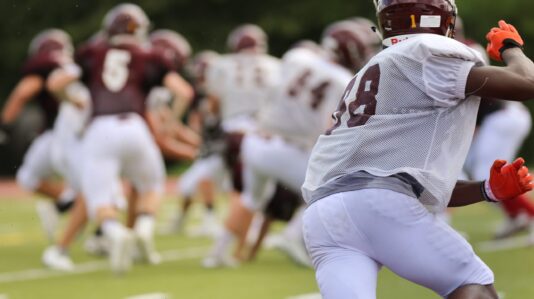The NFL seems to fumble its attempts to protect the integrity of football, particularly in high profile cases. Fundamental principles of fairness (written in the Constitution) have generally been overlooked when handing out sanctions to NFL players for misconduct. In a series of recent disciplinary actions by the NFL, courts stepped in and looked beyond the substance of each case to preserve the procedural safeguards of due process.
The NFL’s disciplinary proceedings came under scrutiny once again in this year’s latest scandal– DeflateGate. On May 11, 2015, NFL quarterback Tom Brady received a four game suspension for being “generally aware” that the New England Patriots were using under-inflated footballs in the AFC Championship Game – presumably so the footballs would be easier to catch. On appeal, Judge Berman threw out the suspension, finding that there were several legal deficiencies: (1) inadequate notice to Brady of his alleged misconduct and potential for discipline; (2) denial of the opportunity for Brady to examine a key witness; and (3) denial of equal access to investigative files, including witness interview notes.
The recent ruling in DeflateGate is just one example of the NFL’s tendency to hand down arbitrary punishments for violations of league rules. On November 4, 2014, former U.S. District Judge Barbara S. Jones threw out the indefinite suspension for Baltimore Ravens running back Ray Rice. The suspension was originally for two games, but later modified after video surfaced of Rice hitting his wife in a hotel elevator. Jones held that NFL Commissioner Roger Goodell’s decision to change Rice’s original suspension from two games to indefinite, after footage of the violence went public, was “arbitrary” and an “abuse of discretion” because Rice was punished twice for the same act.
In an effort to clean up the league’s reputation, the Commissioner issued an enhanced Personal Conduct Policy (“New Policy”), increasing sanctions for domestic violence and sexual assault incidents from a maximum two game suspension to a minimum six game suspension. The Commissioner applied the New Policy in the wake of Minnesota Vikings running back Adrian Peterson’s indictment for child abuse in September 2014, and suspended Peterson for the rest of the 2014 season. However, the New Policy was put into effect after Peterson’s son sustained injuries during the incident. The U.S. District Court Judge David S. Doty overturned the suspension, stating that the Commissioner was acting outside of his authority by applying the New Policy retroactively. Judge Doty also stated that the league was required to provide proper notice of the policy change to its players.
Protecting the integrity of football and disciplining players for misconduct remains a priority for the NFL and Commissioner Goodell. Although the NFL has had a string of defeats in the eyes of the law, there is a valuable lesson to be learned– the constitutional guarantees, that all legal proceedings will be fair, and that those whose rights are in jeopardy shall be given notice of the proceedings and the opportunity to be heard, apply to NFL proceedings, despite Commissioner Goodell’s efforts to evade them when punishing players. Whether or not this lesson will be applied in future cases remains to be seen.
In the future, the NFL and Commissioner Goodell might run into less trouble by:
- Reviewing current policies and giving notice of any changes;
- Providing notice of any alleged misconduct and potential for discipline;
- Making all relevant witnesses available for examination; and
- Allowing both parties to review all investigative files.
Tom Brady has already taken the field for the Patriots’ first two games of the season, but DeflateGate may be far from over, as the NFL appealed Judge Berman’s decision. For now, Commissioner Goodell should focus on applying the principles of due process when imposing discipline to ensure that each player and each disciplinary incident is treated fairly.
Contact an Attorney Today
The experienced attorneys at Romano Law are ready to help. Contact us at 212-865-9848 or complete this form to speak to a member of our team!



